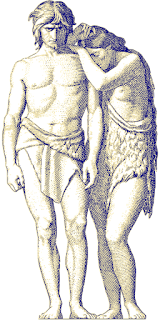The Boston Brahmins:
At the end of this email I will attach some links which speak various poets' being significantly influenced by Indian scriptures. They were all scholars of Gita, Upanishads and Vedanta. It all started when the British Governor-General of India between !772 and 1785 -Warren Hastings asked to learn about the Hindu scriptures. After he was impressed, he felt that this MUST be translated into English and made available the world over. The first ever English translation of the Gita was commissioned by Warren Hastings through the East India company through a Sanskrit speaking Britisher known as Charles Wilkins. It was published in London in 1785 under the British East India company. Warren Hastings the British Governor-General and a Christian wrote.......... " Long after the British Empire has been wiped out from the face of the earth, the Gita will continue to give consolation and peace to mankind" .
Within 5 years of it being translated to English, it made a worldwide stir and it was already translated into French, German and Russian. Allover Europe Centers for study of Sanskrit and Indian studies were opened. By 1832, Gita was traslated into Latin.
Poets like Wordsworth, Blake, Coleridge, Shelley and Keats had not only read Wilkin's trtanslation of Gita but also imbibed the spirit of the Gita. Johan Wolfgang von Goethe and Leo Tolstoy emphasised the message of the Upanishads and Gita in most of their writings. These British Poets were Puritans and strict Christians . They were happy that the Gita said that an upright man is a Brahmin - be he of any religion. The poets of Britain and USA were together influenced and learned from each others writings and philosophy, and that the Gita gave them solace and the inspiration to write their poetry. The American poets then formed a group called the Boston Brahmins. Others formed similar Vedic-groups in USA called the Transcendentalists, the Concord movement and New Thought Movement. The following Founding Fathers of American literature and poetry were influenced by Wilkins translation of 1785 :
Ralph Waldo Emerson 1803 -1882
Henry Thoreau 1817 -1862
Amos Bronson Alcott 1799- 1888
Sarah Fuller 1810- 1850
Walt Whitman 1819- 1892
Henry Longfellow 1807- 1882
Oliver Wendel Holmes 1809 - 1894
James Russell Lowell 1819- 1891
Also, Wordsworth, Blake, Cloeridge, Shelley, Keats, Von Goethe and Tolstoy.
Just as an aside, Ralph Waldo Emerson resigned from his post as minister of the Unitarian Church of Boston because of doubts about administering the sacrament of the Lord's supper. He had heard about the Gita's influence in England. He went to London and met with William Wordsworth, Thomas Carlyle, Samuel Coleridge, and Walter Savage Landor who introduced him to Wilkins Gita and spoke to him about it. In 1836, Ralph Waldo Emerson , who was by now thoroughly influenced by the teachings of the Gita, and pleased that he did not have to give up his religion, formed the Transcendental Club in Boston based on these principles that he learned. He wrote an essay called Nature in 1836. Emerson's Transcendentalist Club opposed rituals, and dogmatic theology. he promoted 'self-examination'individualism, beauty and respect of nature and all living things, and that Divinity permeated all living things.
In his journal, Emerson wrote in 1845 that he was reading the Gita and essays on the Vedas. He said further, " I owe a magnificent day to the Bhagwad Gita. it was the first of books; as if it were an empire spoke to us, nothing small or unworthy, but a large serene consistent voice of an old intelligence which in another age and climate had pondered and thus disposed of the same questions which exercise us"
Similarly, Henry David Thoreau in Concord Mass was a student of the scriptures. He wrote:
1. " I would say to the readers of the Scriptures, if they wish for a good book, read the Bhagwad-Gita...translated by Charles Wilkins. It deserves to be read with reverence even by Yankees...besides the Bhagwad-Gita, our Shakespeare seems sometimes youthfully green....the Western world has not yet derived from the East all the light it is destined to derive thence"
2. " Whenever I have read any part of the Vedas, I have felt that some unearthly and unknown light illuminated me. In the great teachings of the Vedas there is no touch of sectarianism. It is of all ages, climes and nationalities and is the Royal road for the attainment of the Great Knowledge. When I am at it, I feel that I am under the spangled heavens of a summer night,"
3. : I cannot read a sentence in the book of the Hindus without being elevated as upon the table land of the ghats. It has such a rhythm as the winds of the desert, such a tide as the Ganges, and seems as superior to criticism as the Himalayan Mounts. Even at this late hour, unworn by time with a native and inherent dignity it wears the English dress as indifferently as the Sanskrit."
http://www.google.com/search?client=gmail&rls=gm&q=william%20wordsworth.%20%20gita .......William Wordsworth and Gita


Comments
Post a Comment